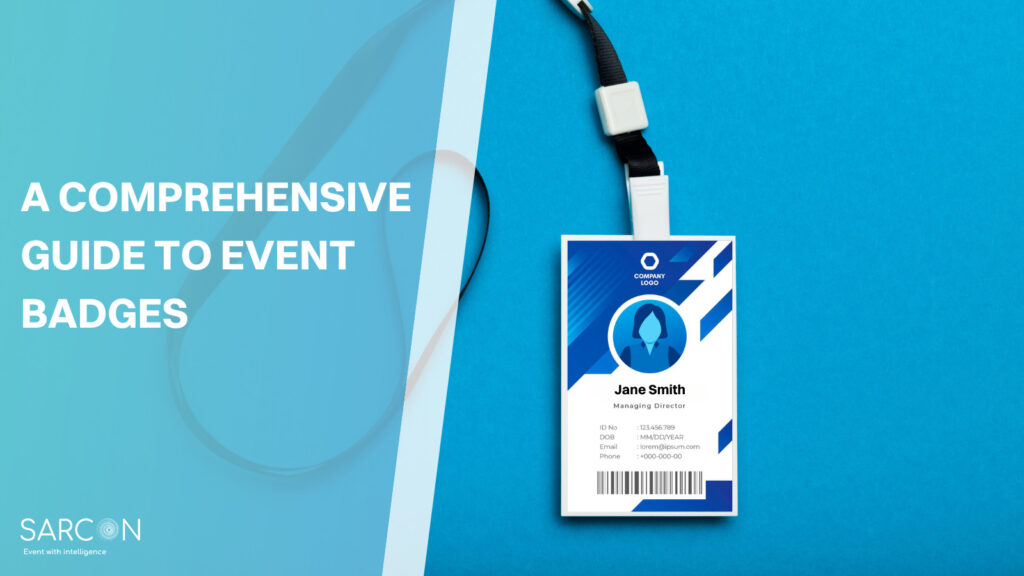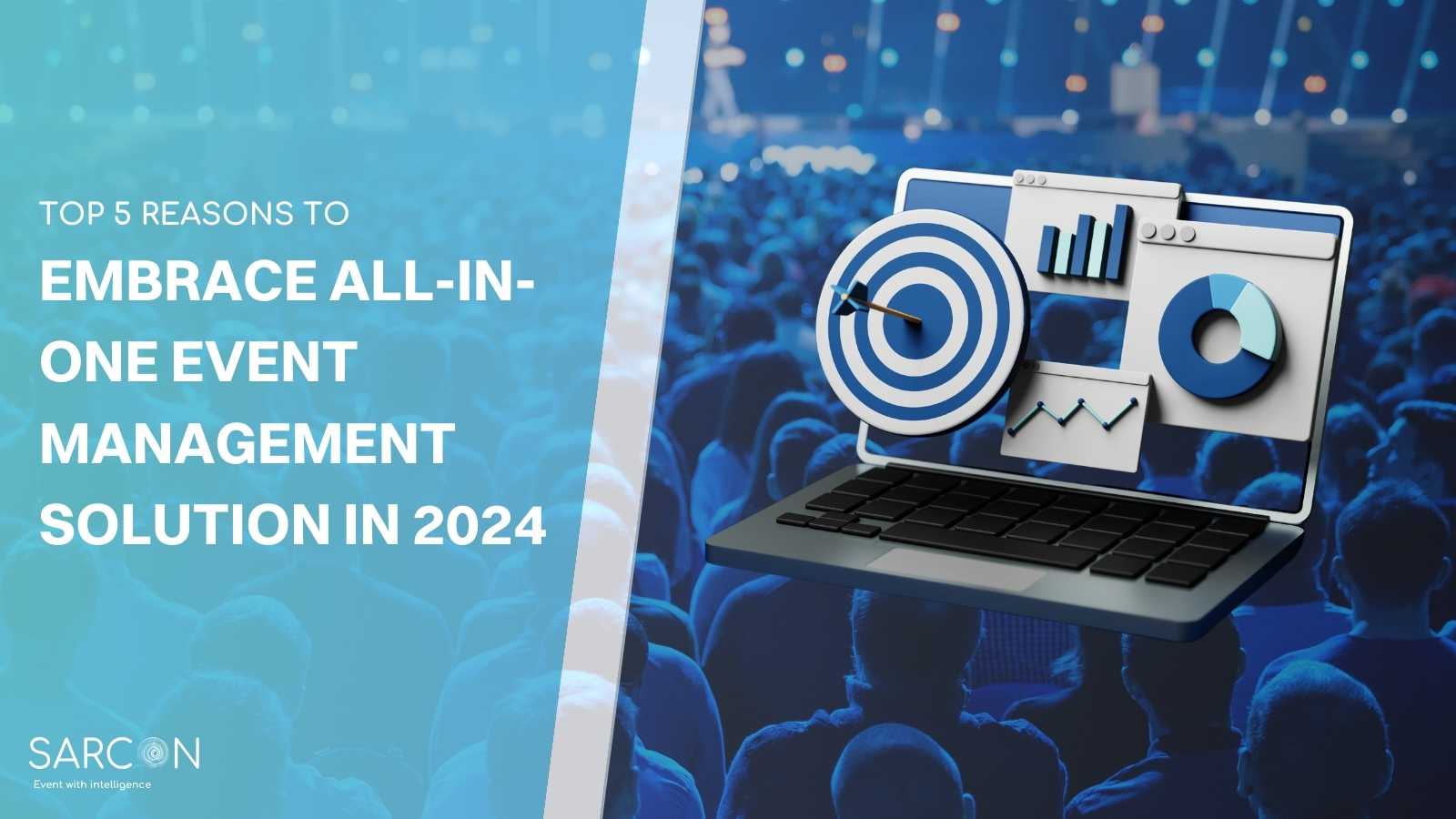Event badges serve as more than just identification; they’re essential tools in creating a seamless and memorable event experience. In this guide, we delve into the world of event badges, discussing their significance, various types, design considerations, and creative ideas. Whether you’re organizing a corporate event, conference, trade show, or social gathering, understanding the nuances of event badges can significantly enhance attendee engagement and satisfaction.
Whether you’re an event organizer seeking to optimize your badging strategy or an attendee curious about the significance of this unassuming accessory, our guide aims to provide a definitive understanding of the crucial role event badges play in shaping successful gatherings.
What Are Event Badges?
Event badges are personalized identification tools worn by attendees at events, ranging from conferences and trade shows to corporate gatherings and social events. They are designed to visually represent the attendee’s role, affiliation, and access level within the event. Beyond identification, event badges serve as indispensable tools in the realm of event management, seamlessly blending functionality with brand representation.
These small yet pivotal items, typically worn around the neck or affixed to clothing, play a crucial role in fostering networking, streamlining event logistics, and enhancing brand visibility.
Benefits of Event Badges
Event name badges offer a multitude of benefits:
1. Seamless Access and Security:
Event badges function as more than just a visual identifier; they serve as a gateway to the event itself. By granting authorized access to specific areas, sessions, and activities, badges play a pivotal role in maintaining event security. Attendees, speakers, and staff can be effortlessly identified, ensuring a safe and controlled environment. Moreover, modern badge technologies, such as RFID and QR codes, enable swift and contactless check-ins, reducing queues and congestion at entry points.
2. Enhanced Attendee Engagement:
The inclusion of essential information on event badges empowers attendees with instant access to schedules, session details, and speaker information. This not only ensures participants are well-informed but also encourages them to proactively engage with the event’s offerings. The convenience of having pertinent information at their fingertips fosters a more interactive and immersive event experience.
3. Catalyst for Networking:
Events provide unparalleled opportunities for networking and forging valuable connections. Event badges, especially those equipped with customizable features like names, affiliations, and even social media handles, facilitate meaningful interactions among attendees. These badges serve as conversation starters especially if you are trying to design an introvert- friendly event.It helps break down initial barriers and expedite the process of establishing professional relationships.
4. Brand Visibility and Recognition:
Event badges represent a subtle yet effective branding tool. They can be customized to incorporate event logos, themes, and colors, thereby reinforcing brand identity throughout the event space. This consistent visual representation not only boosts brand recognition but also contributes to a cohesive and polished event atmosphere.
5. Data Collection and Analytics:
In the digital age, data is a valuable asset. Event badges, especially those integrated with technology, allow organizers to gather insightful data on attendee preferences, session attendance, and engagement levels. This data can be leveraged to refine future event strategies, tailor content to audience interests, and enhance overall event planning.
6. Efficient Event Management:
From an operational standpoint, event badges streamline logistical aspects. Differentiating between attendees, exhibitors, speakers, and staff becomes effortless, aiding event organizers in orchestrating a smooth flow of activities. The quick identification of participants also assists in managing session capacities and resource allocation.
7. Expediting Follow-ups and Connections
After a successful event, the connections made and information exchanged shouldn’t fade into obscurity. Modern event badges often come with digital components, such as QR codes or NFC technology. Attendees can easily scan these codes to collect contact information or access shared resources. This feature simplifies the follow-up process and ensures that valuable connections continue to grow long after the event concludes.
8. Lasting Souvenirs:
Event badges often transcend the event itself, serving as keepsakes that participants take home. A well-designed badge can evoke fond memories of the event and the connections made, fostering a lasting connection with both the event and its organizers.
Different Types of Event Badges: Choosing the Right One
There are several types of event badges, each serving different purposes: As an event organizer, choosing the right type of badge is crucial to ensure smooth operations and a positive attendee experience.
Standard Badges:
Standard event badges are the foundation of any successful gathering. Designed to include essential participant information such as name, affiliation, and a clear ID photo, these badges provide a professional and welcoming impression. While seemingly basic, the significance of standard badges cannot be overstated. They enable attendees to easily identify and interact with one another, fostering networking opportunities that lie at the heart of events.
VIP Badges:
For distinguished guests and sponsors, VIP badges are a powerful way to acknowledge their significance and make them feel valued. These badges often feature distinctive designs, unique colors, or premium materials, setting their wearers apart from the general crowd. By offering exclusive access to certain areas, sessions, or amenities, VIP badges provide an added layer of engagement, enhancing the overall event experience for these special participants.
Exhibitor Badges:
In events that involve exhibitions or trade shows, exhibitor badges are indispensable for proper organization and effective visitor engagement. Exhibitor badges typically include not only the exhibitor’s name and organization but also their booth number or company logo. This facilitates seamless navigation of the trade floor, enabling attendees to identify and locate specific exhibitors of interest effortlessly.
Press Badges:
For events with media coverage, press badges serve as the bridge between organizers and the press corps. These badges often incorporate a “Press” or “Media” designation and can include additional information, such as media outlet affiliation. By granting designated media personnel unrestricted access to key areas and interview opportunities, press badges facilitate accurate event coverage and promote the event to a broader audience.
Speaker Badges:
Speakers are the backbone of many events, sharing their expertise and insights with attendees. Speaker badges are designed to highlight their status and expertise, often featuring a title like “Speaker” or “Presenter.” These badges not only facilitate easy recognition but also encourage engagement between speakers and participants. They can also serve as conversation starters, allowing attendees to approach speakers for discussions and questions.
Choosing the Right Badge for Your Event
Choosing the appropriate badge type depends on the event’s nature, attendees, and objectives.
When selecting the appropriate type of event badge, it’s imperative to consider the nature of your event, the range of participant roles, and the specific goals you aim to achieve. Whether you’re orchestrating a corporate conference, a trade show, a charity gala, or a tech symposium, the badge you choose should align with the event’s tone and objectives.
Remember that the right badge not only serves practical purposes but also contributes to the overall ambiance of the event. A well-designed badge enhances professionalism, promotes interaction, and simplifies navigation, all of which contribute to a positive attendee experience.
Designing Badges for Different Event Types
Different types of events warrant distinct approaches to badge design, tailored to the specific nature and objectives of each occasion.
Corporate Events: Making an Impression of Professionalism
Corporate events demand a badge design that resonates with the ethos of the organization while exuding an air of professionalism. Opt for clean and elegant designs that incorporate the company logo, attendee’s name, designation, and perhaps even a QR code for easy networking. Subtle color palettes and high-quality materials lend an air of sophistication to corporate badges. Remember, a corporate event badge is not only a credential but also a representation of the company’s image.
Conferences: Balancing Information and Aesthetics
Conferences bring together diverse groups of professionals with varied interests. An effective conference badge design should strike a balance between providing essential information and maintaining a visually appealing aesthetic. Include the event’s schedule, session details, and speaker information. Utilize clear typography, intuitive icons, and a harmonious color scheme to facilitate quick information retrieval while fostering a sense of engagement among attendees.
Trade Shows: Navigational Tool with Branding
Trade show badges hold a dual role as both identification tools and navigational aids. These badges should prominently display the attendee’s name, organization, and perhaps a floor plan or booth numbers. Implement bold branding elements, ensuring that the logo and colors align with the company’s identity. The design should be eye-catching to facilitate networking, making it easier for participants to identify key contacts in a bustling environment.
Social Events: Fostering Interaction and Enjoyment
For social events, badges are more than just identifiers; they are icebreakers. Design badges that encourage interaction and set a positive tone. Incorporate fun elements, like personalized taglines or conversation starters. Depending on the event, consider playful designs, vibrant colors, and even thematic elements that align with the event’s spirit. By fostering a relaxed atmosphere, social event badges can contribute significantly to attendee enjoyment.
Design plays a crucial role in attendee perception and engagement, making it essential to tailor badge aesthetics to the event’s context.
Must-Haves to Maximize Your Badge’s Potential
Creating the perfect attendee badge requires careful consideration of several factors:
1. Consider Badge Materials:
The choice of badge material significantly impacts the badge’s durability and perceived value. Opt for materials that align with your event’s theme and elevate its aesthetic. From sleek plastics to eco-friendly alternatives, the material sets the stage for the badge’s overall impact.
2. Custom Design: Embrace Customization Options:
A one-size-fits-all approach seldom resonates. Embrace customization options that reflect your event’s identity. Incorporate logos, color schemes, and typography that mirror your brand. By personalizing each badge, you create a sense of exclusivity that attendees will cherish.
3. Effective Visuals:
Visuals are the language of engagement. Ensure your badge design strikes a balance between aesthetics and information. A clutter-free design enhances readability, making essential details readily accessible.
4. Utilize Engaging Content and Information:
Beyond the basics of name and affiliation, consider integrating engaging content. This could range from personalized schedules to QR codes leading to event-specific apps. Empower attendees with pertinent information that enriches their experience.
5. Barcodes/QR Codes:
Leverage technology to expedite processes and enhance engagement. Barcodes or QR codes streamline check-ins and enable attendees to access event materials seamlessly. This integration of technology enhances both convenience and attendee engagement.
6. Colour Coding:
Colors communicate messages subtly yet effectively. Implement color coding to categorize attendees, sessions, or access levels. This simple technique not only aids event management but also adds a layer of visual sophistication to your badges.
7. Consistency and Quality
While the designs for these event types may differ, there are common threads that run through effective badge design. Consistency in branding elements, typography, and color schemes across different badges creates a sense of unity. Quality materials and printing techniques elevate the overall perception of the event, emphasizing professionalism.
8. Compatibility with Badge Printers/Readers:
A beautifully designed badge is only effective if it can be easily printed and scanned. Ensure your design is compatible with commonly used badge printers and readers to prevent any technical hitches during the event.
9. Easy Access:
Attendees juggle various items during events. Make wearing the badge hassle-free with comfortable attachment options like lanyards, clips, or magnetic fasteners. Prioritize convenience to encourage consistent badge display.
10. Prepare for Backup Scenarios:
Despite meticulous planning, contingencies can arise. Always have a backup plan for badge distribution and reprints. Quick and effective solutions demonstrate your event’s organizational prowess. Remember, an event badge isn’t just a mere identifier; it’s a conduit for engagement and a symbol of your event’s identity. By incorporating these must-haves, you ensure that each badge becomes a miniature representation of the event’s grandeur.
Ideas for Event Badges
Enhance attendee engagement with creative badge ideas:
1. RFID-Enabled Badges:
In an increasingly digital world, RFID-enabled badges have gained popularity due to their multifaceted functionalities. These badges incorporate radio-frequency identification technology, allowing for seamless access control, tracking attendance, and enhancing security measures. Additionally, RFID badges can be used for gamification and interactive elements during the event, providing a dynamic attendee experience.
2. QR Code Badges:
QR code badges have emerged as a modern solution for events aiming to enhance engagement and provide digital access. Attendees can scan QR codes on these badges to access event-specific apps, schedules, and personalized information. This type of badge is particularly suitable for tech-savvy audiences and events with a strong digital component.
3. Eco-Friendly Badges:
As environmental consciousness continues to grow, eco-friendly badges have become a prominent choice. Crafted from sustainable materials, these badges align with the eco-conscious values of many attendees and event organizers. Opting for eco-friendly badges not only reduces the event’s carbon footprint but also conveys a commitment to responsible event management.
4. Smart Wearables:
For cutting-edge events, smart wearables like wristbands or lanyards with embedded technology can revolutionize attendee experiences. These wearables can offer features such as cashless payments, real-time translation services, and personalized agendas. Their futuristic appeal can leave a lasting impression on tech-forward audiences.
On-Site Badge Printing
Gone are the days when event organizers had to pre-print badges, leading to time-consuming administrative tasks and potential last-minute changes. On-site badge printing has transformed this process into a seamless and efficient experience. The ability to swiftly design, print, and distribute attendee badges directly at the event venue offers a host of advantages that directly contribute to smoother operations and heightened attendee satisfaction.
Benefits of On-Site Badge Printing
- Real-time Customization: On-site badge printing empowers event organizers to make real-time adjustments to attendee badges. Whether it’s correcting typos, updating session information, or accommodating last-minute changes, the flexibility of on-site printing ensures accurate and up-to-date badges for all attendees.
- Enhanced Attendee Engagement: Personalized badges that include attendees’ names, affiliations, and even their preferred pronouns foster a sense of belonging. This small yet impactful touch demonstrates a commitment to attendee recognition and contributes to a more inclusive event atmosphere.
- Efficient Check-In: On-site badge printing streamlines the check-in process, reducing wait times and long queues. Attendees can simply register, print their badges, and swiftly move into the event without unnecessary delays.
- Branding and Professionalism: Custom-designed badges featuring event logos and branding elements add a professional touch. Attendees become walking advertisements for your event, reinforcing your brand identity and leaving a lasting impression.
- Security and Access Control: On-site badge printing can incorporate security features such as QR codes or RFID technology, allowing for seamless access control and enhanced event security. This prevents unauthorized entry and helps track attendee movement throughout the event.
Elevating Efficiency with Sarcon’s Regcheck Pro
As events continue to evolve, incorporating technological advancements like on-site badge printing becomes imperative. Enter Sarcon’s Regcheck Pro, a cutting-edge solution that brings a new dimension to event management. With a suite of advanced features, Regcheck Pro transforms the way events are orchestrated, ensuring a seamless experience for both organizers and attendees.
Here’s how:
- Create, Design, Print, and Distribute: Regcheck Pro empowers organizers to effortlessly create and design badges tailored to their event’s unique requirements. The integrated printing capabilities ensure that badges are ready for distribution within moments.
- On-Site Check-In and Ticket Scanning: The software’s advanced functionalities extend to on-site check-in and ticket scanning. Attendees can present their digital tickets for quick validation, ensuring a smooth entry process.
- Self Check-In Using Mobile Phones: Regcheck Pro’s mobile integration allows attendees to check in using their smartphones. A quick scan of their unique QR code instantly generates their badge, eliminating the need for physical tickets and reducing environmental impact.
Conclusion
Event badges are more than mere identifiers; they are powerful tools that influence attendee experience and engagement. By understanding the benefits of different badge types, incorporating effective design strategies, and embracing creative ideas, event organizers can elevate their events and leave a lasting impression on attendees. The flexibility of on-site badge printing ensures real-time personalization and efficient check-in processes, contributing to a successful event that attendees will remember fondly.
FAQs
Q.Can I use event badges for virtual events?
While physical badges might not be applicable, you can create digital badges for virtual attendees.
Q. How do I choose the right badge type for my event?
Consider the event’s nature and attendee categories when selecting the appropriate badge type.
Q.Can I print badges in advance for efficiency?
While pre-printing badges can save time, on-site printing offers flexibility for last-minute changes.
Q.Can I create DIY badges forevents?
Absolutely. With online badge makers and printable templates, you can design and print badges for events inexpensively.



